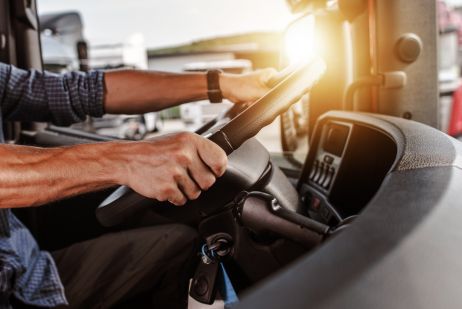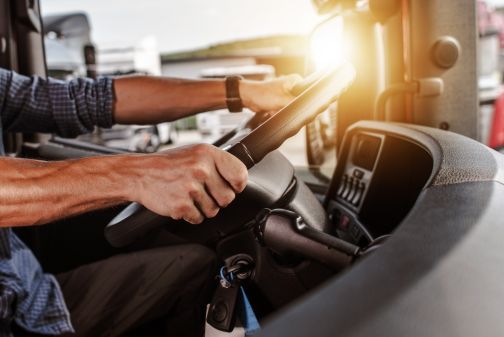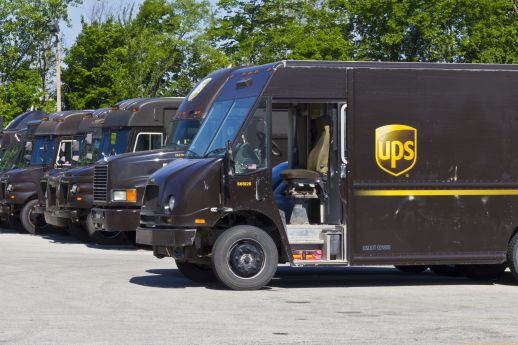Getting a commercial driver’s license (CDL) requires that you go through several steps. Each step costs money. Each step of the process, from applying for your CLP to getting your Commercial Driver’s License (CDL), incurs its own cost. All of these fees can add up quickly and can easily add up quickly. Knowing what to expect and what the costs will be can help you plan ahead.
Connect with a verified mechanic in minutes. No appointments. No high fees. No waiting. Get back on the road and enjoy the ride.
It is important to know that each state has its own fees. Some states impose fees for a certain step in the CDL process, and in others, there are no fees associated with any particular step. Keeping this in mind, we have put together some of the information that you will need to get a Florida CDL.
What is a CDL License and What Do You Need it For?
Commercial drivers have special licenses that enable them to drive some vehicles. For example, they are able to drive 18-wheelers, tour buses, school buses, and other large tankers. Federal laws regulate these types of licenses in the United States.
Type of vehicle, the weight of the cargo, the number of passengers in the vehicle and its gross vehicle weight (GVWR) determine what kind of commercial driver’s license is required. Students must also obtain a CDL permit before they can legally practice driving a commercial vehicle. To do this, they must pass a written test. To get this, they must take a test that requires them to submit a written application to the state to have their license issued.The Different Types of CDL Licenses
If you plan to drive a big box truck that weighs more than 26 tons and is going to be driving across Florida, you must have a Commercial Driver License (CDL). Drivers operating hazardous materials vehicles or buses that carry at least 26 people are required to have a commercial driver license.
There are some exceptions where a commercial license is not necessary. Drivers do not need a CDL to operate large farm machines or military vehicles. Drivers do not need a CDL if they are operating a heavy vehicle for their own personal use.
Connect with a verified mechanic in minutes. No appointments. No high fees. No waiting. Get back on the road and enjoy the ride.
Class A
You need a Class A license to drive a combination vehicle (CMV) that is larger than a normal car. These are trucks that tow a unit, usually a trailer. Getting a Class A license is necessary for trucks that weigh more than 26 tonnes combined. Class A is also good for semi-trailers that weigh more than 10 tonnes.
Truck-tractor and semi-trailer combinations are examples of CMVs that are in the category. Having a Class A license allows you to drive many other types of vehicles, including Class B and Class C vehicles.

Class B
Class B CMVs are very heavy, straight vehicles. These are very similar to Class A in terms of weight requirements. Vehicles that are not combination types must weigh 26,001 pounds or more. Or, if you’re towing a trailer, the trailer shouldn’t weigh more than 10,000 pounds.
Trucks and large buses are classified as Class B vehicles, which means that you can drive them if you have a Class B CDL. However, you cannot drive Class A CMVs with a Class B CDL. You can operate vehicles that require a Class C CDL, though!
Class C
It is required that drivers have a Class C CDL to operate vehicles that carry a gross vehicle weight less than 26,001 pounds. If a driver is towing a motorized dumping unit, it must not weigh more than 10,000 pounds.
Drivers of Class C CMVs must be able to transport 16 or more passengers or more, including the driver. Some drivers have special endorsements that make them eligible to operate certain types of vehicles and transport certain types of cargo.
How Do You Get a CDL Permit in Florida?
Anyone who wants to start driving on the roads while waiting to get their Commercial Driver’s License must first get a CLP. If you’ve obtained a CLP, you can drive on public roads with another CDL holder riding along with you. There are two phases to getting a Florida Commercial Driver’s License. The first is getting a CLP, which is basically a temporary permit which allows you to practice driving in your state for a few weeks before you take the test to get your CDL. After holding that permit for a while, you’ll be able to get a Commercial Driver’s License (CDL).
You will need to pass a written test to get your CDL. The fee is $60. It is going to be a written test based on the requirements of your state’s Commercial Driver’s License Manual. You will need to get a copy of your state’s Commercial Drivers License Manual from the local Department of Motor Vehicles (DMV). Most states post their CDL manuals online, too. If you cannot locate your state’s CDL Manual, try using the CDL Manual of another state. These are real tests that are taken from various state CDL Manuals.
This is a 50-question written test that takes about an hour to complete. If you get 80 percent or 40 of the questions right, you will qualify to receive your Commercial Driver’s License. You will need to have your own medical report and get a Medical Examiner to sign a form certifying your health. You’ll need $60 to submit the required documentation and pay the requisite fee.

Review engine, brake issues, error codes and more with a Mechanic Online in just minutes.
Ask a Mechanic Live NowHow Do You Get a CDL License in Florida?
CDL tuition costs between $1,500 and $8,000. After you combine the fees above with the other costs mentioned above, obtaining your CDL can cost you up to $9,000! Fees vary depending on where you live and where you train, and they are subject to change. They may include the following:
- CDL Application Fee: $0-$43 (based on state)
- CDL Endorsement Fee: Depends on state
- CDL Written Test Fees: as much as $125
- CDL Skill and Road Test Fees: as much as $250
- CDL License Fee: as much as $120
Max Anthony
Max is a gizmo-savvy guy, who has a tendency to get pulled into the nitty gritty details of technology and cars. He attended UT Austin, where he studied Information Science. He’s married and has three kids, one dog and a GMC truck and a Porsche 911. With a large family, he still finds time to share tips and tricks on cars, trucks and more.
Review engine, brake issues, error codes and more with a Mechanic Online in just minutes.
Ask a Mechanic Live Now




